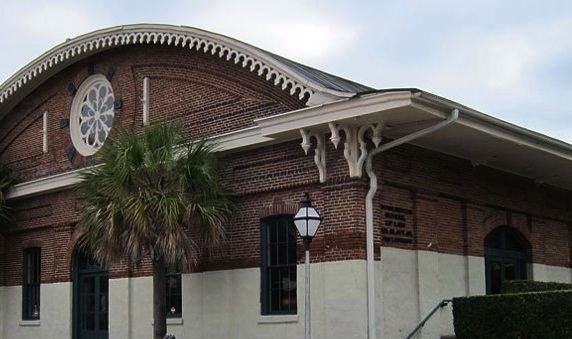More On Charleston School Of Law
SCHOOL’S DEAN STILL PUSHING … GETTING PUSHBACK Last summer this website broke our secoYou must Subscribe or log in to read the rest of this content.
SCHOOL’S DEAN STILL PUSHING … GETTING PUSHBACK
Last summer this website broke our seco

16 comments
“At the outset let me apologize for the length of this letter”
If lawyers had to draft business letters communicating something other than a brief, legal threat, etc. they would be screwed.
They should all be forced to take a course on business writing, especially when running a business. Who even starts a letter like that?
Abrams aka Judge Sanders’ Biotch!
As President Abrams noted, each school has its own distinctive feel. With the support of Infilaw, I think this is a great option.
And yet the share the common trait of being laughing stocks within the legal community. With the support of Infilaw, I also think this is a great option — for the University of South Carolina School of Law.
TL,DR.
No kidding.
CSOL’s whole “Public service” mantra is already a joke given the tuition it charges, the fact that the school is a for-profit school, and the employment rates and salaries of its graduates. It apparently requires it students to perform pro bono work while in law school. Imagine their surprise to find upon graduation that they qualify for pro bono assistance and other welfare programs because they can’t find a job or can only find jobs that place them at or below the poverty line. Selling the law school to Infinilaw would only further expose this charade.
I honestly pity the city of Charleston if this sale goes through. It will be crawling with hundreds, if not thousands, of heavily indebted, desperate “lawyers” who will do nothing more than make every sneeze a lawsuit. I’m willing to bet most of the morons that will go to Infinilaw CSOL will not be from SC and will have no problem burning Charleston to the ground through frivolous lawsuits. When larger cities like Charlotte, Phoenix, and Jacksonville can’t handle the massive influx of mouth-breathing Infinilaw grads, why would anyone think Charleston could?
Yes….Mr Folks may be right about this article being a little dry; but once the Hall’s Chophouse backstory and puckering is reviewed…..this layout is rather hilarious.
The Mayor Riley “after dinner mints” may need to be passed around during the next “student union” meeting….!!
What a joke! He’s paid by Infilaw. What do you expect?
Andy Abrams is shameless.
Any decent law school dean would have resigned by now. Seriously, the email is embarrassing.
So that’s what goes for an education in Charleston?
Close it down.
Sic, you were the first to expose the “real” reason Jean Toal fixed the law exam thing back in what, 2008? You were the first to report that it caused the CSOL value to quadruple. You even compared it to the Jacksonville, Florida school. You exposed that Toal and Sanders were bff’s from 1974 when they were young turks in the legislature with Dick Riley and John Hamilton Smith. Smith made a career out of being Toal’s behind the scenes bitch and whore. Keep up the good work.
I’ve really been laughing out loud reading that CSOL alumni and students think they are any better than those from the three schools in the Infilaw consortium. And posts from the little podunk Charleston legal community make it sound like it’s sending its practitioners to the Supreme Court on a regular basis. Maybe to take a tour. Even the funny looking building pictured above the story makes me laugh. Is that really a contemporary law school??
CSOL’s faculty credentials, student body make-up, performance outcomes, and institutional credibility are all mediocre at best…and nothing but progress could come from being affiliated with other schools in a similar situation who are working hard on the right things.
The whole notion of a for-profit consortium is a little misleading to those who don’t have firsthand knowledge. I have worked at both large public land-grant universities and small private universities, and the law school deans at both had much more pressure on them to make money for the school than the consortium does. Although the consortium is investor-owned, the idea of making a profit does not impact the day-to-day operations nearly as much as it is being portrayed. And frankly, those investors are the reason that the three schools have the resources to do some really great work.
Yes, the market is tough. It’s tough everywhere and even graduates from much higher ranked schools can have a hard time pinning down a job…or even passing a bar exam. The difference is off-set by what the Infilaw schools actually invest in the student experience. Which seems to be somewhere Charleston has a lot of room for improvement.
“It’s tough everywhere and even graduates from much higher ranked schools can have a hard time pinning down a job…or even passing a bar exam.”
Graduates of non-infinilaw law schools pass the bar MUCH more regularly and at much higher percentages than those in Infinilaw schools. Why? Because look at the admission standards at infinilaw schools.